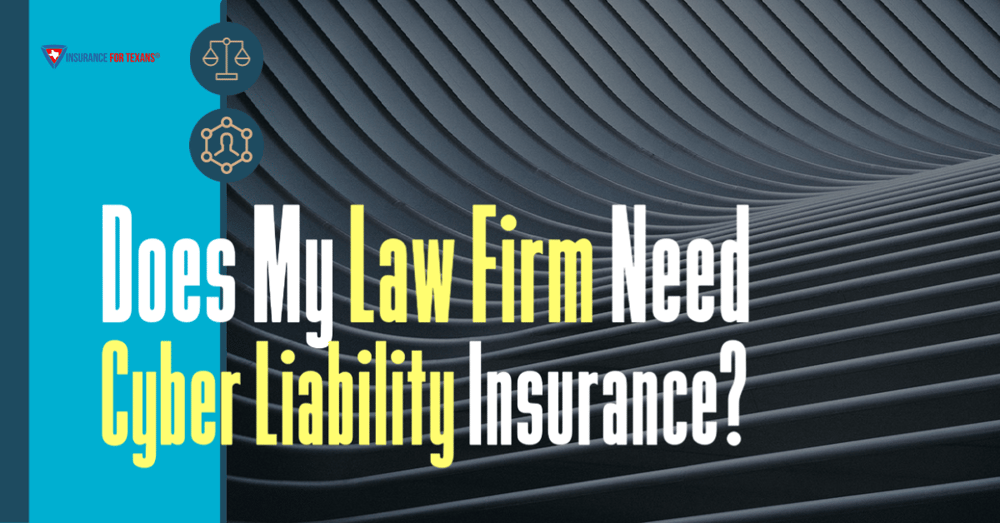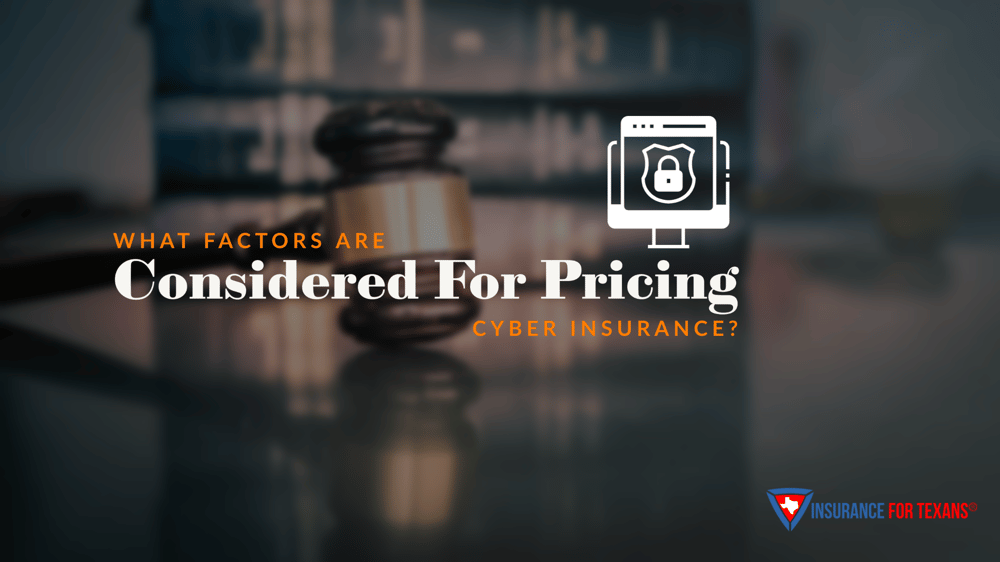In today's digital age, businesses are increasingly reliant on technology to store and manage sensitive information. Law firms are no exception to this trend, as they handle a vast amount of confidential and sensitive data on a daily basis. However, with the increase in data breaches, cyber-attacks, and other forms of cybercrime, law practices are facing a growing risk of cyber threats. Cybercriminals often target law offices as a means to gain access to valuable client information, and the consequences of a cyber-attack can be devastating for both the law firm and its clients.

This is where cyber liability insurance comes in. In this article, we will explore why cyber liability insurance is essential for law practices, what it is, what factors are considered when pricing policies, and how to purchase a comprehensive cyber policy. By understanding the importance of cyber insurance, law firms can take proactive steps to protect their client's sensitive information and ensure the continued success of their practice.
What is Cyber Insurance?
Cyber insurance is a type of insurance that helps protect businesses against the financial losses associated with cyber threats. For a law firm, this type of insurance policy can be essential as it helps safeguard against the risks associated with handling sensitive and confidential information for clients. Cyber insurance covers a range of risks, including data breaches, hacking, phishing, ransomware attacks, and social engineering attacks. In the event of a cyber-attack, this policy can cover various expenses such as legal fees, notification costs, and regulatory fines.
If a data breach occurs at your law firm, it is mandatory for you to inform your clients as per legal requirements. This may have adverse effects on your finances and professional relationships. Cyber liability coverage can help cover expenses related to notifying affected parties and any financial losses incurred due to the breach.
Two Types Of Coverage
There are two primary types of cyber insurance coverage to take into account: first-party and third-party coverage.
First-party cyber liability insurance refers to insurance that covers the costs a business incurs in the event of a cyber attack, such as the costs of investigating the breach, restoring data, and notifying clients. It may also cover losses that result from business interruption and theft of digital assets.
Third-party cyber liability insurance, on the other hand, protects against claims made by clients or other parties who have been affected by a cyber attack. This may include claims for damages resulting from the loss of personal information, unauthorized access to financial accounts, or other forms of cybercrime.
For law firms, both types of coverage are important. First-party coverage can help the firm quickly recover from a cyber attack by providing funds to restore data and get the firm back up and running. This coverage can also help to mitigate potential reputational damage that may result from a breach.
Third-party cyber liability insurance is equally important for law firms, as it can protect the firm from lawsuits and other legal claims that may arise from a cyber attack. For example, if a client's personal information is stolen as a result of a breach, the law firm may be held liable for damages. Third-party coverage can help to cover these damages, as well as the legal fees associated with defending against such claims.
When considering cyber insurance coverage for a law firm, it's important to work with an experienced insurance agent who can help assess the firm's specific needs and recommend appropriate coverage options. It's also important to carefully review policy terms and conditions to ensure that the coverage provided is comprehensive and sufficient to protect against all potential cyber threats.

What Factors Are Considered for Pricing Cyber Insurance?
Several factors are considered when pricing cyber insurance policies. These factors include the size of the law firm, the type of data the firm handles, the firm's security practices, and the number of past claims. The larger the firm and the more sensitive data it handles, the higher the risk and the higher the insurance premium. Insurance providers will also look at the firm's security practices, including the use of firewalls, anti-virus software, and data encryption. If a law firm has a history of past claims, this can also affect the cost of insurance. Here are some additional key considerations:
-
Coverage Limits: One of the most important factors to consider is the policy limits offered by the policy. Law practices should ensure that the policy provides adequate coverage for potential losses, including loss of income, data restoration costs, crisis management, and legal fees associated with any lawsuits or regulatory investigations that may arise.
-
Policy Exclusions: It is important to review the cyber policy carefully to ensure that it covers the specific risks faced by the law firm. Some policies may have exclusions for certain types of cyber attacks, such as social engineering or phishing attacks, which are common in the legal industry.
-
Retroactive Coverage: Law firms should verify if currently insured that they can maintain their original retroactive date, which provides coverage for cyber incidents that occurred before the policy was purchased. This is important because cyber attacks can go undetected for months or even years, and law firms may not discover them until long after they occurred or a cyber policy has been transferred to a new carrier.
-
Vendor Requirements: Law firms should also consider the cyber insurance requirements of their clients and vendors. Many clients and vendors now require their partners to have cyber coverage as a condition of doing business.
-
Risk Assessment: Before purchasing cyber liability insurance coverage, law firms should conduct a comprehensive risk assessment to identify their specific cyber risks. This can help ensure that the policy provides adequate coverage for the risks faced by the firm.
-
Deductibles: Law firms should also consider the deductible or self-insured retention (SIR) amount associated with the policy. A higher deductible can result in lower premiums but may also increase the financial burden on the law firm in the event of a cyber attack.
-
Insurer Reputation: Finally, law firms should consider the reputation and financial stability of the cyber insurance carriers they choose to purchase from. It is important to work with an insurance company that has experience in the cyber liability space and a proven track record of paying claims in a timely and fair manner.
How to Purchase Cyber Liability Coverage
The best place to start is finding an independent insurance agency, like Insurance For Texans, that can help you understand the multiple types of cyber insurance available and has experience in insurance for law firms. Our agent will work with multiple insurance providers to generate custom cyber liability options with the broadest protection available.
Our cyber liability insurance team will ask questions about your firm's security practices, past claims, and the type of data the firm handles. Based on this information, our agents will provide the firm with several options for cyber liability insurance policies. It is important to review each policy carefully and understand the coverage limits, deductibles, and exclusions. Once a policy has been selected, Insurance for Texans can help your firm complete the application process to begin coverage.
As cyber threats continue to increase, law firms need to take proactive measures to safeguard their client's information. However, cyber liability is just one type of business insurance needed by your law firm. As an independent insurance agency, our agents can help with property, general liability, professional liability (malpractice policies), commercial auto, workers compensation, and much more.



